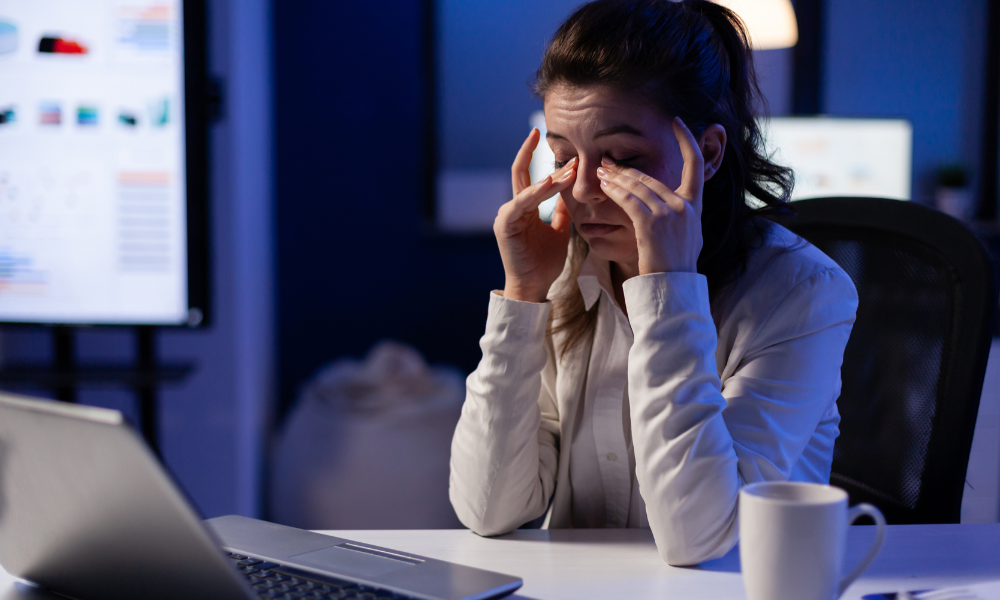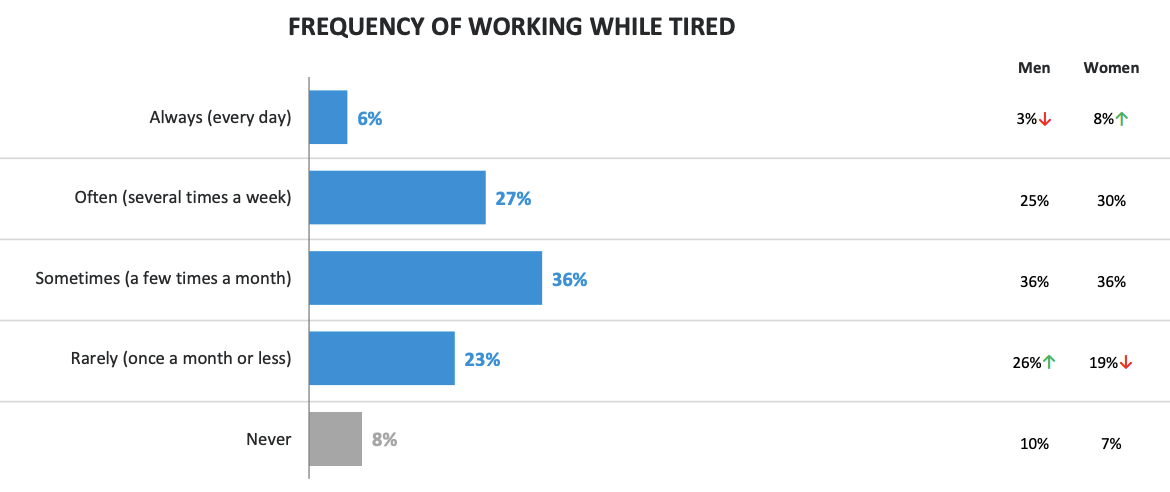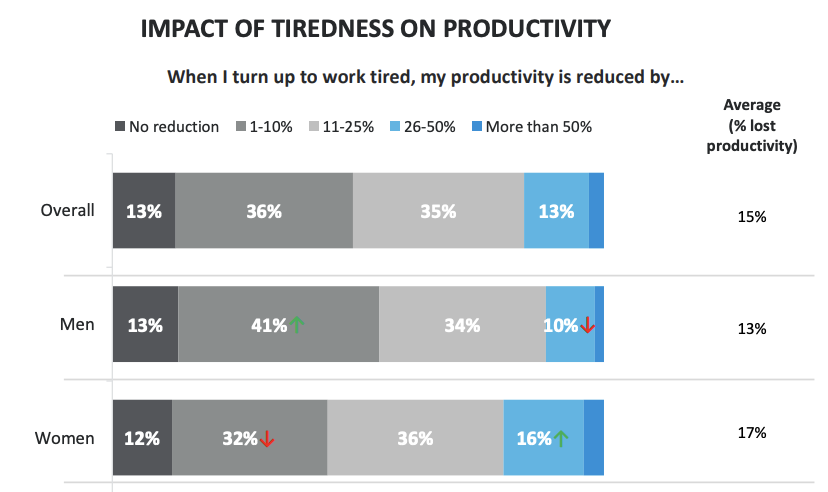
New report underscores importance of sleep in the workplace

More than half of Australian employees have admitted that they reported to work despite being exhausted in the past year, according to a new report.
The report, released by private health insurer HIF, found that 54% of Australians have turned up to work exhausted in the past year, with the numbers rising to 62% for flexible workers.
More than a third (36%) of the respondents said they are working while tired a few times a month, while 27% said they work while feeling tired several times a week.

Source: HIF Sleep Index - 2024
As a result, those who have confessed to reporting to work despite feeling exhausted said it affected their productivity, with the average decline at around 15%.

Source: HIF Sleep Index - 2024
Amid widespread exhaustion at work, the report also revealed that nearly a third of employees have engaged in some form of sleeping or napping during work hours.
This includes 15% of employees who said they took a "sneaky" nap at work or during work hours.
Another 11% said they had fallen asleep while working, while six per cent said they had taken a nap that their boss knew about during work hours.
However, not all employees have turned up for work amid exhaustion, as 28% said they faked a sickie because they were too tired to work.
Justin James, CEO of HIF, said the findings underscore "concerning data" about Australians and their sleep, as well as how exhausted the country's workforce is.
"There are no medals for 'powering through'; sleep is a health issue, and we need to treat it as such. No one needs to 'fake a sickie' if they're tired," James said in a statement.
Amanda Slinger, a sleep expert, added that poor sleep is a "critical workplace issue."
It affects "both employee and organisational health and performance through higher absenteeism, reduced productivity, and weakened innovation," Slinger said.
"When employees are under-slept, they're at greater risk of errors, poor decisions, and stress-related illnesses, which directly impact an organisation's bottom line."
The expert said employers have the "powerful opportunity" to enhance employee sleep health through targeted education and smart work design.
At HIF, James outlined some of the steps they're taking to help their workforce prioritise sleep.
"We've implemented company-wide training about sleep to make sure our team prioritise it and we encourage our team to take personal leave as they need it," he said. "And to help them 'nap openly' during work hours we've introduced a sleep space at our head office."